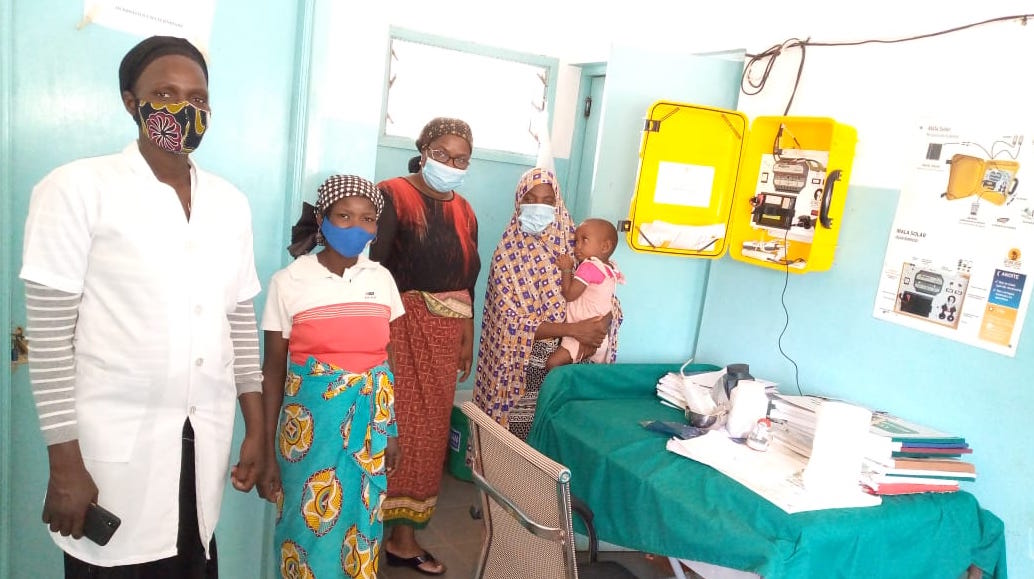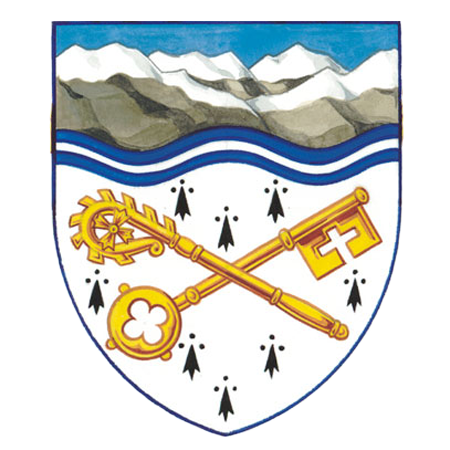In the Mogovolas District of Mecutamala, Mozambique, the nurses who work in the maternity wards have seen the light. Solar-powered light, that is. In 2016, solar panels were installed on the roofs of 30 health clinics in the region. The panels are connected to a device known as a solar suitcase, a wall-mounted unit that opens like a suitcase and includes phone charging ports, a portable headlamp and a fetal Doppler to monitor baby’s heartbeat. The solar suitcase project brought clean and efficient electricity to labouring moms, babies and the trained professionals who care for them.
The project was such a success that in April 2021, PWRDF is partnering again with EHALE Mozambique and California-based We Care Solar to bring light to another 50 rural health clinics. You can ensure babies are born safely with a donation to PWRDF’s A Light for Every Birth project. A single unit, including transportation and installation, costs roughly $6,000. Donations in any amount are now being accepted and parishes and groups are encouraged to work together to raise funds.

Domingas Joaquim poses with three of her children, all born at a clinic with a solar suitcase.
For Domingas Joaquim, 38, the solar suitcase is truly a lifesaver. The resident of Muania gave birth to three of her six children in the Mecutamala health centre after the installation of a solar suitcase. “If it were not for the solar suitcase one of my children would have died, or I would have died because after childbirth the child needed to be resuscitated,” she says. “Without lighting it would not be possible.” Joaquim also had a postpartum hemorrhage, but because there was light, the nurse was able to identify the source of the hemorrhage and resolve it.
Nurse Cristina Kaunda Quilossa agrees. “In the past, to deliver babies at night, we used phone flashlights, holding them in our mouths.“ After a while the nurses would have to change the position of the phones in their mouths, which increased the risk of cross-contamination with the labouring woman.
Nurse Cristina also notes that the built-in fetal Doppler helps them quickly identify the fetal heartbeat, which can be tricky in women with a history of prolonged labour or with other obstetric complications. Light is helpful after baby is born, too. Now that nurses can see what they’re doing, they can address labour problems such as laceration of the cervix or post-partum hemorrhage. Moms like Domingas can now be treated in the clinic safely, while awaiting transport to a hospital.
“The solar suitcases have reduced the rate of maternal and neonatal deaths and reduced the number of deliveries outside the maternity ward,” says community leader Francisco Martinho. He is careful to monitor use of the suitcase and make sure new employees conserve the battery and avoid recharging several cell phones at the same time. “The solar suitcase is life-saving, economical and sustainable because it uses nature to recharge it,” he adds. The cost of running the solar suitcases is next to nothing because the lithium batteries last for years. There is no fuel to purchase, just free sunshine, of which Mozambique has plenty.
For more information go to https://pwrdf.org/solarsuitcases2021




